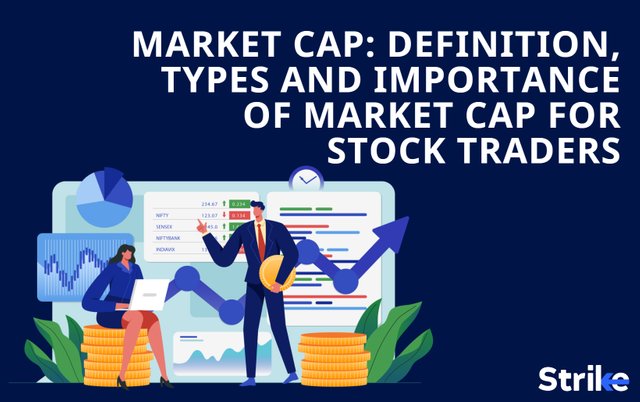Understanding Market Capitalization: A Comprehensive Guide

In the realm of finance, especially in the stock market, one term that frequently dominates discussions and analysis is "market capitalization," often shortened to "market cap." Market capitalization serves as a vital metric for investors, analysts, and companies alike, providing insights into the value, size, and potential of a publicly traded company. In this comprehensive guide, we delve into the intricacies of market capitalization, its significance, calculation, and implications in the financial world.
Defining Market Capitalization:
Market capitalization refers to the total value of all outstanding shares of a publicly traded company. In simpler terms, it represents the market's perception of a company's worth. It is calculated by multiplying the current market price of one share by the total number of outstanding shares. Mathematically, Market Cap = Current Market Price per Share x Total Outstanding Shares.
Understanding Market Capitalization Categories:
Companies are often categorized based on their market capitalization into three main groups: large-cap, mid-cap, and small-cap.
Large-cap: Large-cap companies typically have market capitalizations exceeding $10 billion. These are often well-established, financially stable firms with a global presence. Investors usually perceive large-cap stocks as less volatile and lower risk compared to mid-cap and small-cap stocks.
Mid-cap: Mid-cap companies generally have market capitalizations between $2 billion and $10 billion. These companies are often in a phase of growth and expansion, with the potential for significant appreciation in value but also higher volatility compared to large-cap stocks.
Small-cap: Small-cap companies have market capitalizations typically below $2 billion. They are often younger companies or those operating in niche markets. Small-cap stocks are perceived as having higher growth potential but also higher risk due to their relative instability and susceptibility to market fluctuations.
Significance of Market Capitalization:
Market capitalization holds significant importance for various stakeholders:
Investors: Market cap helps investors gauge the size and risk associated with a particular investment. Large-cap stocks are favored by conservative investors seeking stability, while aggressive investors might opt for small-cap stocks with higher growth potential.
Companies: For publicly traded companies, market capitalization influences their visibility, attractiveness to investors, and ability to raise capital. A higher market cap can indicate a company's success, leading to increased investor confidence and better access to financing opportunities.
Index Funds and ETFs: Market capitalization plays a crucial role in index funds and exchange-traded funds (ETFs) where funds are often allocated based on the market cap of included companies. Indices like the S&P 500, which tracks the 500 largest U.S. publicly traded companies, are weighted by market capitalization.
Factors Affecting Market Capitalization:
Several factors can influence a company's market capitalization:
Financial Performance: Strong financial performance, including revenue growth, profitability, and earnings per share, can positively impact a company's market cap.
Market Sentiment: Investor sentiment, prevailing economic conditions, geopolitical events, and industry trends can influence market capitalization through changes in stock prices.
Corporate Actions: Events such as mergers and acquisitions, stock splits, buybacks, and issuance of new shares can directly impact a company's market cap.
Competitive Landscape: Changes in the competitive landscape, technological advancements, regulatory changes, and disruptions within the industry can affect a company's perceived value and, consequently, its market capitalization.
Limitations of Market Capitalization:
While market capitalization is a widely used metric, it does have its limitations:
Neglects Debt and Assets: Market cap solely focuses on a company's equity value and ignores its debt levels and asset base, providing an incomplete picture of its financial health.
Volatility: Market cap can be highly volatile, especially for mid-cap and small-cap stocks, making it challenging to assess a company's true intrinsic value solely based on market capitalization.
Influence of Speculation: Market cap can be influenced by speculative trading, market rumors, and short-term fluctuations, leading to mispricing and inaccurate valuation.
Conclusion:
Market capitalization serves as a fundamental metric in the world of finance, offering insights into the size, value, and potential of publicly traded companies. Understanding market capitalization categories, factors influencing it, and its significance is crucial for investors, analysts, and companies alike. While market cap provides valuable information, it's essential to consider it alongside other financial metrics to make informed investment decisions and assess a company's true worth accurately.